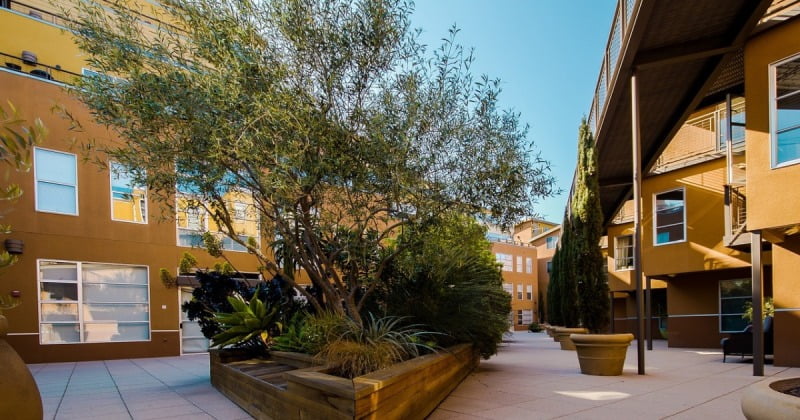Reinier advises national and international companies
reinier.russell@russell.nl +31 20 301 55 55The current legislation already offers the necessary options for owners’ associations to take action against apartment owners that obstruct indispensable maintenance. They can be held accountable for their responsibility for the building as a whole. In addition, binding advice or mediation also provide appropriate opportunities, while substitute consent can be requested from the judge. Finally, the municipality can be appealed to.

In an article published in De Volkskrant of 3 December 2018, the owners’ association interest group VvE Belang says that maintenance by owners’ associations is inadequate. This is because under current legislation, in particular within small owners’ associations, no majority can be formed to take measures and/or dysfunctioning apartment owners cannot be forced to contribute to maintenance of communal areas, such as facades, roofs or doorways.
The cause of this is that the owners’ association can only come to a decision for maintenance if a majority in the meeting agrees with the proposal. If there is no majority the proposal (for maintenance) is deemed to be rejected. Particularly in owners’ associations with an even number of voting rights this may lead to no maintenance being performed at all. Not just actual overdue maintenance but also the dysfunctioning of the owners’ association must be included by appraisers assessing the value of an apartment. This may cause apartments to become actually impossible to sell.
The Act improvement owners’ associations took effect on 1 January 2018. This Act stipulates that owners associations have to save a certain statutory minimum amount for maintenance each year. The Act does not provide a (additional) solution for the maintenance that does not take place due to stalemates or indecisiveness within owners’ associations in addition to the various options provided by the former laws and regulations to resolve the aforementioned problem.
Apartment owners must keep an eye on mutual reasonable interests and act accordingly, with a view to maintenance of the building. Apartment owners can hold each other accountable and, if necessary, claim compliance in court.
The property division regulations of the owners’ association often include dispute resolution enabling the resolution of mutual disputes between members or between the owners’ association and members by experts such as arbitrators or binding advisers, or mediation.
The owners’ association or a member can go to court to request substitute authorisation (consent) for the maintenance desired. The judge will grant the authorisation if the consent or contribution of the members is rejected without any reasonable cause. The more the need for maintenance increases, the more serious grounds the opponent will have to give to prevent the judge from granting substitute consent.
If there is a risk of deterioration and the state a building is in could be a threat for public health or security, the law provides the possibility for the municipality to intervene in an owners’ association. With the authorisation of the court, the municipality can be provided with extensive powers, for instance:
However, the municipality has no right to vote in the owners’ association.
The Housing Act offers the municipality the opportunity to bind the owners’ association to have an expert draw up a maintenance plan, or – in a critical case – the municipality can require an owners’ association and individual owners to contribute to the maintenance subject to payment of a penalty.
The current laws and regulations offer various options to prompt obstructive apartment owners to take the necessary action. Make use of it and, if necessary, consult a lawyer to determine which option or combination of options is most likely to be successful.
Would you like to learn more about the functioning of owners’ associations? Do you want to make an apartment owner contribute to maintenance? Please contact us:
Buildings may be timeless but every now and then work will have to be carried out in order to prevent decay. Lessees and lessors have different rights and duties, depending on whether the work can be considered as renovation or (urgent) maintenance.
Probably as of 1 July 2024, terminating temporary lease of residential accommodation will become more difficult for landlords. However, there are some exceptions. What are the new rules for temporary letting of residential accommodation?
Why is it wise for a landlord to include a diplomat clause in a temporary rental agreement and what is the content of this clause?
Several times last year, the Amsterdam District Court annulled a clause in lease agreements that gave landlords the freedom to increase the rent by more than the inflation rate. This voided all rent increases from the beginning of the lease. But is this a correct interpretation of European consumer law?
The main difference between 230a and 290 business premises is the minimum term of lease. The longer lease term for 290 business premises gives retail and hospitality businesses more time to recoup their investments. What are the lease terms for the different types of business premises?
Leasing 230a or 290 business premises? What do these terms mean anyway? And, most importantly, what are the consequences of this difference for lessors and lessees of business premises?